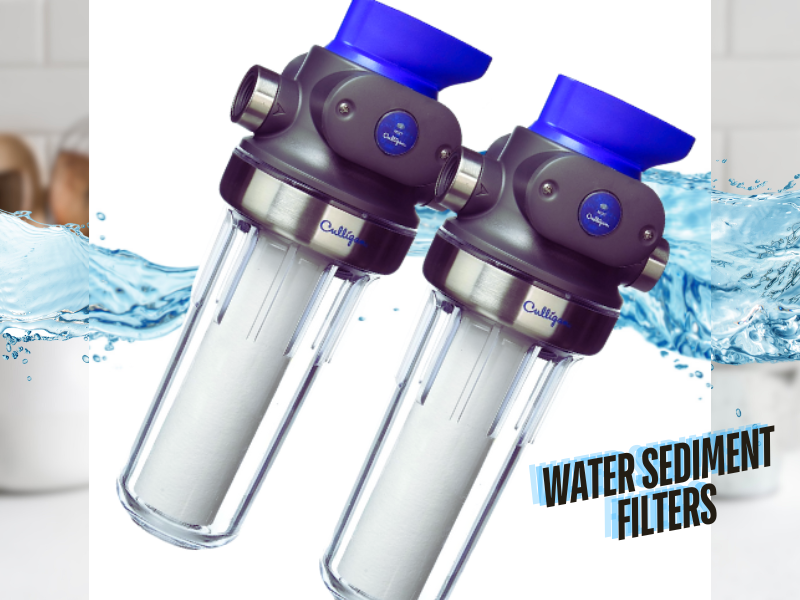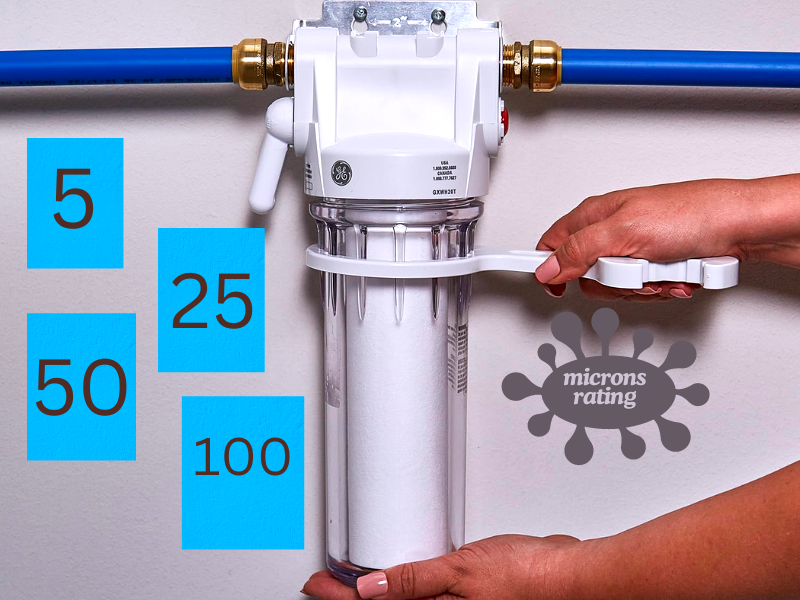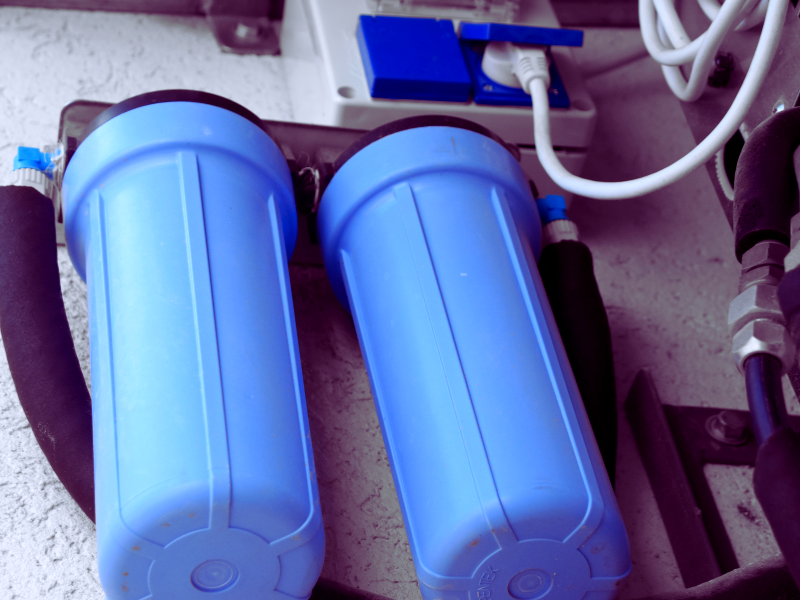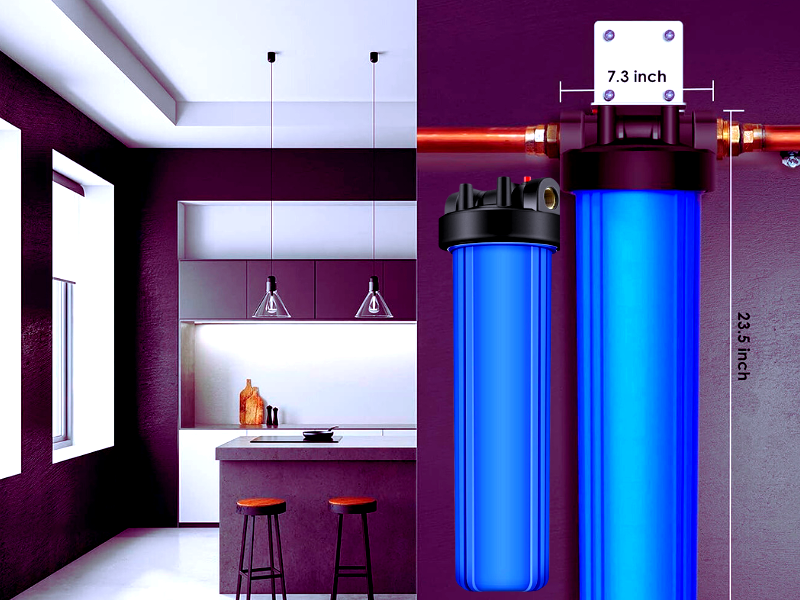Key Takeaways:
- Sediment filters are essential for removing dirt, sand, and silt from your water supply.
- They protect household appliances and improve water quality by filtering out harmful contaminants.
- Different types of sediment filters, like surface and depth filters, cater to various filtration needs.
Water sediment filters play a crucial role in maintaining the quality of water in our homes. They are designed to remove dirt particles, sand, silt, and other suspended solids from the water supply, ensuring that the water we use is clean and safe. But what exactly does a water sediment filter do, and why is it so important? Let’s dive in and explore the details together!

What is a Sediment Filter?
A sediment filter is part of any water filtration system that captures and removes particulate matter such as dirt, sand, silt, and rust from your water supply. Think of it as a sieve that physically blocks unwanted debris from getting into your water so what comes out of your taps is clean and contaminant-free. By doing so, sediment filters improve your water quality and protect your entire water filtration system and household appliances from sediment damage. Whether you have a simple under-sink filter or a whole house system, a sediment filter is necessary for clean and safe water.
How Sediment Filters Work
Sediment filters are the guardians of your water supply, working hard to trap and remove unwanted particles as the water flows through. They can be made of pleated polyester, cellulose, and polypropylene. Imagine them as nets that catch and hold onto particles more significant than a specific size so they don’t get into your home’s water supply.
Sediment filters are usually the first line of defense in a water filtration system. They act as pre-filters to protect more delicate systems like carbon filters and reverse osmosis membranes from clogging and damage. By removing larger particles, sediment filters extend the life of these advanced filtration systems so that you get the cleanest water possible. Sediment filters also remove sediment to enhance the effectiveness of other purification methods like UV disinfection.
Types of Sediment Filters

Not all sediment filters are created equal! There are several types available, each with its benefits. Surface filters, also known as pleated filters, catch particles on the surface of the filter media. These are usually made of pleated polyester or cellulose and have high flow rates and long life. On the other hand, depth filters catch particles throughout the entire thickness of the filter media. Made of polypropylene these can handle a wide range of particle sizes so are good at removing smaller particles that might slip through surface filters.
By combining both surface and sediment filters you can get optimal water quality and extend the life of your entire filtration system. Using a sediment pre-filter is also crucial for reverse osmosis systems and carbon filters. It prevents clogging and damage to the RO system’s flow restrictor and extends the life of carbon filters by removing larger particles before they get to the more sensitive filtration stages.
Surface Filters vs Sediment Filters
When it comes to water filtration understanding the difference between surface filters and sediment filters will help you choose the right system for your needs. Surface filters, also known as pleated filters, catch particulate matter on the outer pleated ridges of the filter media. These filters are good at removing larger dirt particles and have high flow rates, so they are good for eliminating visible debris quickly.
On the other hand, Sediment filters are designed to catch particles of all sizes throughout the entire thickness of the filter media. They are good at removing smaller particles that might slip through surface filters. As a pre-filter, sediment filters provide an extra layer of protection for more delicate systems like carbon filters and reverse osmosis membranes. By combining both surface and sediment filters, you can achieve optimal water quality and extend the life of your entire filtration system.
Micron Ratings and What They Mean

Micron ratings are essential when choosing a sediment filter! The micron rating tells you what size particles the filter can catch. For example, a filter with a 5-micron rating can catch particles 5 microns or larger. The lower the micron rating, the smaller the particles it can capture. A filter with a 5 to 20-micron rating is usually sufficient for general household use. But if you have specific needs—like filtering well water or protecting sensitive appliances—you may want to consider a filter with a lower micron rating.
Benefits of Sediment Filters
Using sediment filters in your water filtration system has several benefits. First and foremost, they improve water quality by removing dirt, sand, silt, and other unsightly solids. Not only is your water safer to drink, but it also tastes and looks better – no one wants to drink murky water!
Sediment filters also protect household appliances like washing machines and dishwashers from sediment buildup. By keeping this buildup at bay, sediment filters extend the life of your appliances and reduce maintenance costs.
Applications of Sediment Filters

Sediment filters are very versatile and are used in many different settings, from residential homes to commercial premises. In a residential setting, whole-house sediment filtration systems ensure every tap in your home has clean, sediment-free water. This is especially important for homes with private wells where sediment levels can be higher. By removing dirt, sand, and silt, these filters protect your plumbing and household appliances from damage and reduce maintenance costs.
In commercial settings, sediment filters are essential in places like restaurants, coffee shops, and other businesses where clean water is critical. They are often used in conjunction with other filtration systems like carbon filters and UV water disinfection systems to get the best water. Sediment filters are also used in industrial applications to protect machinery and processes from sediment buildup. By adding sediment filters to your water filtration system, whether at home or in a commercial setting, you can get clean, safe water and remove harmful contaminants.
Protect Your Plumbing System
Sediment filters are important to protect your plumbing system from the effects of sediment buildup. Over time sediment can clog pipes reducing water pressure and wear and tear. By keeping sediment out of the water supply these filters maintain optimal water pressure and prevent costly plumbing repairs.
Sediment filters are especially important for homes with older plumbing systems. They prevent rust and other contaminants from building up, keeping water safe and clean.
Whole House Sediment Filtration Systems

Whole house sediment filtration systems filter all the water entering your home so every tap has clean sediment-free water. These systems usually have several sediment filter cartridges that capture particles of different sizes for total filtration.
Installing a whole-house sediment filtration system is a smart move to protect your entire household from the effects of sediment buildup. Especially for homes with private wells where sediment levels can be higher than municipal water supplies.
Spin Down Filters
Spin-down filters are a type of sediment filter that uses centrifugal force to separate and remove larger particles from the water. These filters are good at capturing sand, dirt, and heavy debris that can damage your water filtration system and household appliances.
Often used as pre-filters in whole-house systems, spin-down filters provide an extra layer of protection for more delicate filtration components. By removing larger particles before they reach the main filtration system, spin-down filters extend the life of your sediment filter cartridges. A sediment prefilter is also important to improve the performance and life of the main filtration system by removing sediment so it protects and improves the efficiency of carbon filters and membranes.
Selecting the Right Sediment Filter for You

Selecting the right sediment filter depends on several factors, including water supply quality, the contaminants you want to remove, and your filtration system’s flow rate. A filter with a micron rating of 5 to 20 microns is usually enough for general household use.
But if you have a private well or need to protect sensitive appliances you may need a filter with a lower micron rating or a special filter like a spin-down filter. By considering your specific needs and selecting the right sediment filter, you can get clean, sediment-free water.
Summary
Water sediment filters play a big role in keeping our home's water clean and safe. They work hard to remove dirt, sand, silt, and other unwanted particles that can end up in your water. Not only do these filters make your water taste and look better, but they also help protect your appliances, like your washing machine and water heater, from getting damaged by all that buildup. When you invest in a good sediment filter, you’re not just improving the quality of your water—you’re also taking care of your health and making sure your home runs smoothly for years to come. It’s a simple way to make a big difference in your everyday life!
Keep up with the latest water filter tips and offers, and subscribe to our newsletter today!
FAQ
What does a sediment filter do?
A sediment filter captures and removes particulate matter, dirt, sand,, and silt from the water supply. This improves water quality and protects household appliances from damage caused by sediment buildup.
How often should I replace my sediment filter cartridge?
The frequency of replacing your sediment filter cartridge depends on the quality of your water supply and the filter you are using. Generally, it’s recommended that cartridges be replaced every 3 to 6 months or as needed based on water pressure and flow rate.
Can sediment filters remove harmful contaminants from the water?
While sediment filters remove particulate matter, some can also capture chlorine and heavy metals. But for total water treatment, you may need additional filtration systems like carbon filters or reverse osmosis systems.








